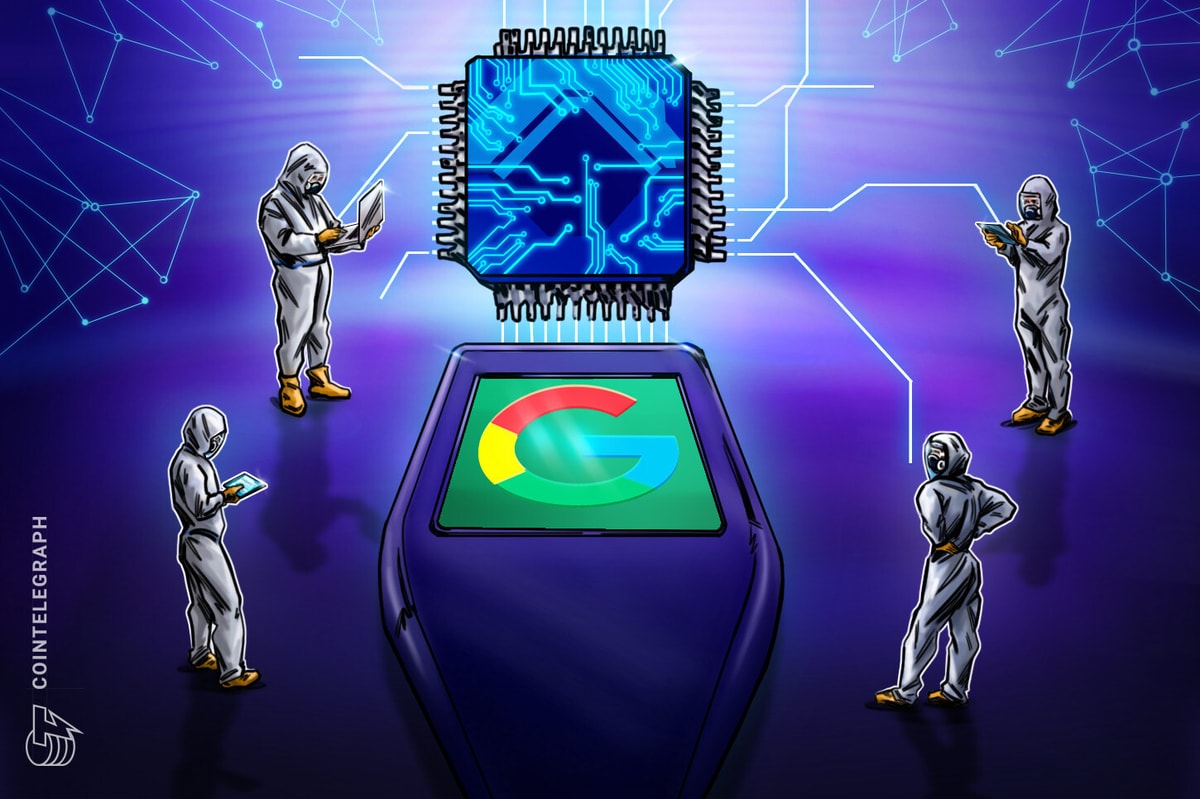Google’s Quantum AI team says its new quantum computing chip is capable of solving a computational problem in less than five minutes — the same problem that would take one of the best supercomputers about 10 septillion years to solve.
The chip, known as Willow, can exponentially correct errors and process certain computations at a mind-boggling pace, Hartmut Neven, Google’s Quantum AI lead, said in a Dec. 9 blog.
“This mind-boggling number exceeds known timescales in physics and vastly exceeds the age of the universe,” he said.
“It lends credence to the notion that quantum computation occurs in many parallel universes, in line with the idea that we live in a multiverse, a prediction first made by David Deutsch,” Neven added.
According to Neven, the second major achievement the team pulled off with Willow is the ability to reduce errors exponentially as it’s scaled up using more qubits, cracking a “key challenge” in quantum error correction that experts in the field have “pursued for almost 30 years.”
“Using our latest advances in quantum error correction, we were able to cut the error rate in half. In other words, we achieved an exponential reduction in the error rate,” he said.
Google’s Quantum AI team says their new quantum computing chip Willow outperforms across several metrics. Source: Google
“This historic accomplishment is known in the field as “below threshold” — being able to drive errors down while scaling up the number of qubits,” Neven added.
A qubit, or quantum bit, is a basic unit of information and key to quantum computing; the more you have, the higher computational power is achieved. Still, adding more qubits increases the risk of errors.
If error rates are too high, the computation will become unreliable and produce incorrect results, making it difficult to scale up the technology to practical, large-scale use.
In a Dec. 9 statement to X, Google CEO Sundar Pichai said Willow is an important step in the tech giant’s journey to build a “useful quantum computer” with practical applications in drug discovery, fusion energy and battery design.
Source: Sundar Pichai
Google hopes to one day develop a computer capable of complex, error-corrected computations. Its quantum computing roadmap shows the company has only reached milestone two of six, which it hit in 2023.
Is Willow a threat to crypto encryption?
Advances in quantum computing have long been feared as an inflection point for the crypto industry. Computers capable of breaking encryption could expose user funds to thieves in large volumes and at rapid rates.
Tech entrepreneur and former senior product manager for Google, Kevin Rose, said in a Dec. 9 statement on X that Willow was still far short of being a threat to crypto.
According to Rose, estimates for compromising Bitcoin’s encryption would require a quantum computer with approximately 13 million qubits to achieve decryption within 24 hours.
“In contrast, Google’s Willow chip, while a significant advancement, comprises 105 qubits,” he said.
Source: Kevin Rose
“We have a ways to go. Nonetheless, this is a remarkable leap forward in quantum computing.”
David Marcus, CEO of payment platform Lightspark, said he doesn’t think most people “fully understand the significance” of the breakthrough by Google.
Related: Scientists breach cryptographic algorithms with quantum computer: SCMP
According to Marcus, it means “post-quantum cryptography and encryption need to get moving.”
Ethereum co-founder Vitalik Buterin has already proposed a way to mitigate the risk of quantum computing for Ethereum, explaining in a March X post that a simple hard fork could subvert the issue.
Buterin said the blockchain would have to hard fork, and users would have to download new wallet software, but few would lose their funds.
Magazine: BTC hits $100K, Trump taps Paul Atkins for SEC chair, and more: Hodler’s Digest, Dec. 1 – 7











